
Czechoslovak Catholic priest and politician, deputy in the Czechoslovak parliament and minister of health from 1948 until 1968, Vice-President and later President of Czechoslovak People’s Party, representative of the party’s collaboration with the dictatorship of the Communist Party of Czechoslovakia.

Mass protests of the citizens of Plzeň against currency reform in 1953. Its size and radical nature make it the largest popular anti-regime protest in Czechoslovakia in the 1950s and an expression of the crisis of the communist system.
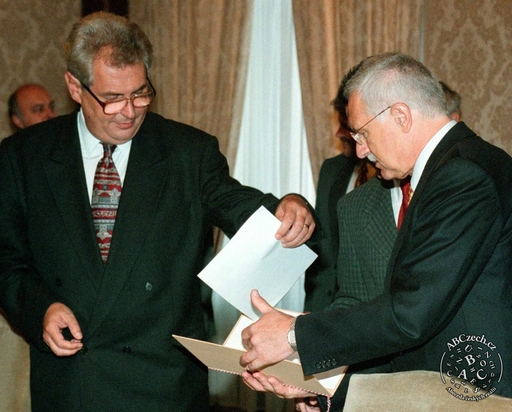
A sequence of modern political events characteristic of the development of the independent Czech Republic. The latest period of modern Czech history, characterised by adherence to market economy, parliamentary democracy and integration into international structures.
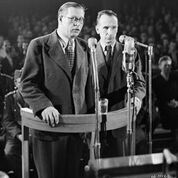
A series of show trials against representatives of the political opposition in the 1950s. They were aimed at consolidating communist power. However, they were also aimed at some distinguished communists.

General label for democratic reforms in Czechoslovak politics and social and media sphere in 1968. Unique and internationally famous attempt at achieving a vision of socialism founded on citizens’ participation, freedom of elections and worldviews.

A puppet, occupied state established on the territory of the Second Republic. It was formed on the basis of Adolf Hitler’s order of 16 March 1939, after the occupation of the Czechoslovak territory by the German army. It was a period of violent Germanisation and political oppression of the Czech people.

Sociologist and philosopher, one of the authors and pioneers of the term “technological revolution”, describing the society of the second half of the 20th century. Richta is still regarded as one of the most distinguished theoreticians of the development of the post-industrial society.
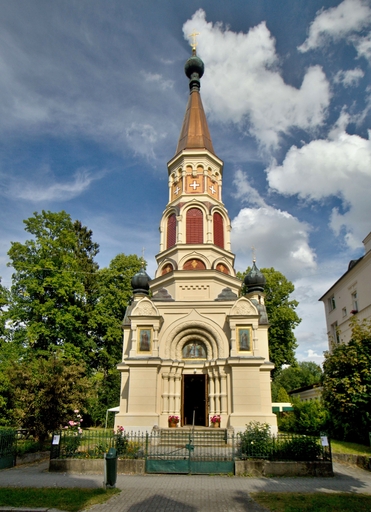
Emigration of Russians to the Czech lands in the 20th century occurred in several waves: 1918–1922, after the Second World War, in the 1960s and 1980s, and after 1989.
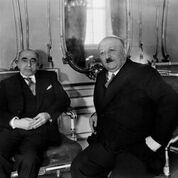
Term for the state and political entity of former Czechoslovakia between the beginning of October 1938 and 15 March 1939. The state founded on the basis of the acceptance of the Munich Agreement in September 1938. The state’s political culture was characterised by conservativism and authoritarianism.

Czech and Czechoslovak Social Democratic politician and journalist, doctor of law, follower of the humanistic principles of T. G. Masaryk. One of the “founding founders” of Czechoslovakia.
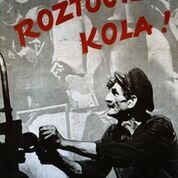
A change in political, economic and cultural standards in Czechoslovakia towards the Soviet model between 1945 and 1956. A significant change of the social order and the parameters of civil society according to the experience of Stalinist modernisation and its ideology.

Czech-German agrarian politician, philologist and literary scholar, member of several Czechoslovak governments. Advocate of cooperation between Czechs and Germans in a common state.

Czech right-wing politician, journalist and publisher, one of the “founding founders” of Czechoslovakia. He significantly contributed to the Czechoslovak public and political life during the First and Second Republic. He was a minister in several Czechoslovak governments. He published seditious newspapers and tabloids. After the Second World War, he was charged with collaboration

German fascist party founded during the First Republic. It advocated the autonomy of Sudetenland.

Czech philosopher, cultural theoretician, journalist and commentator of public affairs. Important representative of Czech Marxist humanism and philosophical anthropology. Author of important essays on the intellectual legacy of Czech history.

One of the most important politicians of interwar Czechoslovakia, affiliated with the agrarian party. He was the Prime Minister in three Czechoslovak governments (1922–1929).

Czechoslovak journalist and communist politician, member of the National Assembly, participant of the Slovak National Uprising, during which he died.

Political form and organisation of post-war Czechoslovakia between May 1945 and February 1948. Its general character was marked by a dominant role of the Communist Party of Czechoslovakia and unambiguous orientation towards the Soviet Union.

A sentence spoken by Václav Havel during the Velvet Revolution. It became a symbol of the democratic political transformation, but after a while it also became a source of a social controversy.

Journalist and publicist, philosopher, assembly deputy in 1990–1992. A prominent Czech left-wing intellectual. He has focused on the protection of human rights and environmental protection all his life. He was a signatory of Charter 77 and later he was affiliated with the Green Party.
2016-2020 ABCzech.cz - © Filozofická fakulta Univerzity Karlovy
Content from this website may be used without permission only for personal and non-commercial purposes and with the source cited. Any other use is allowed only with the authors' consent.
This web application Sonic.cgi meets GDPR requirements. Current information can be found here.